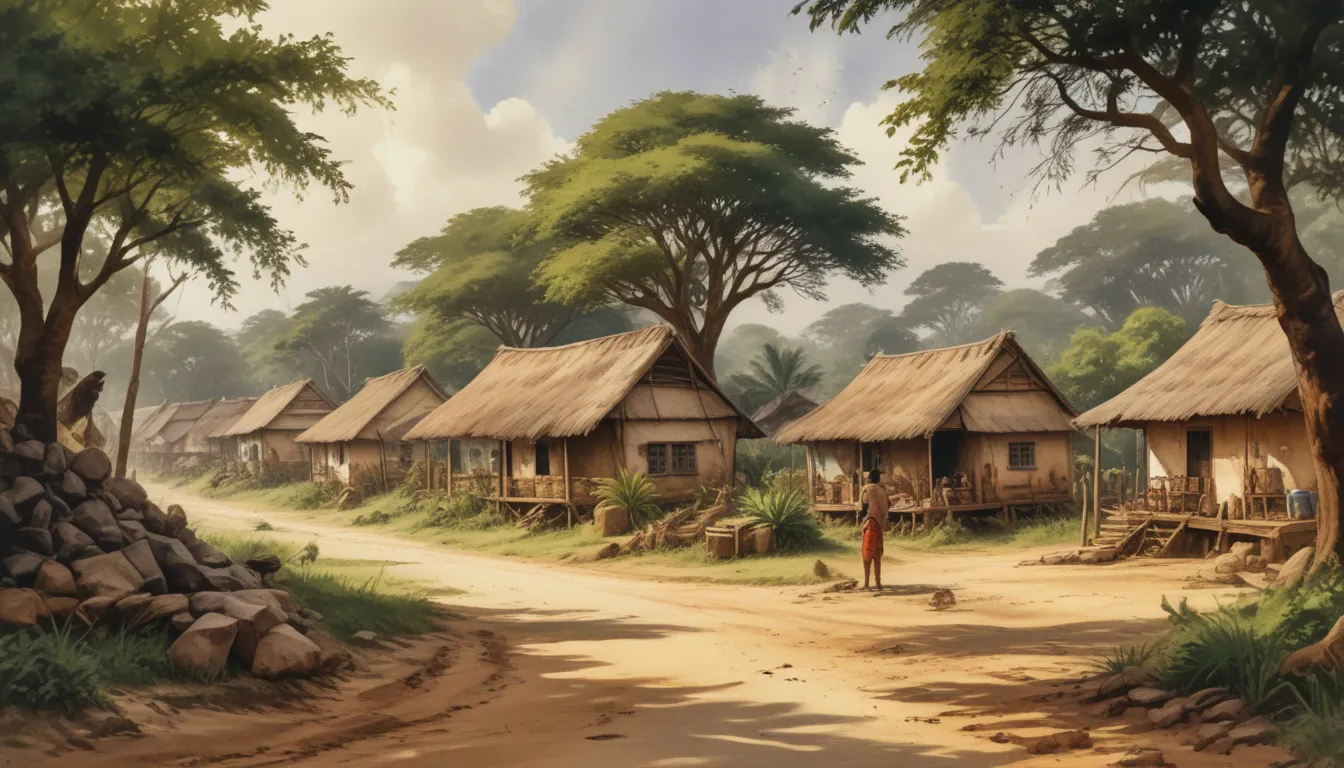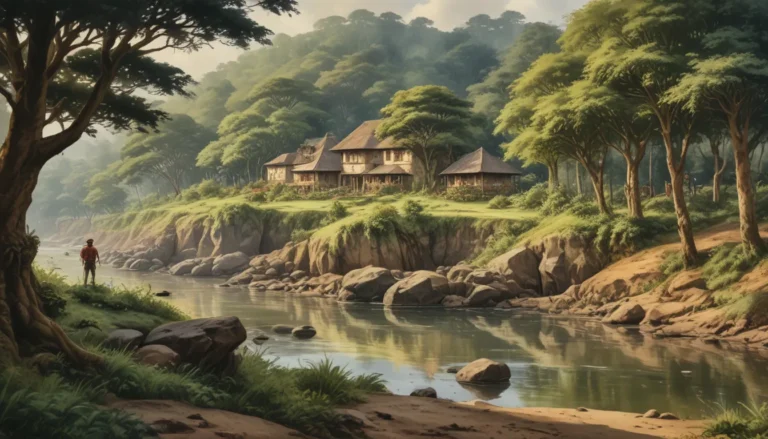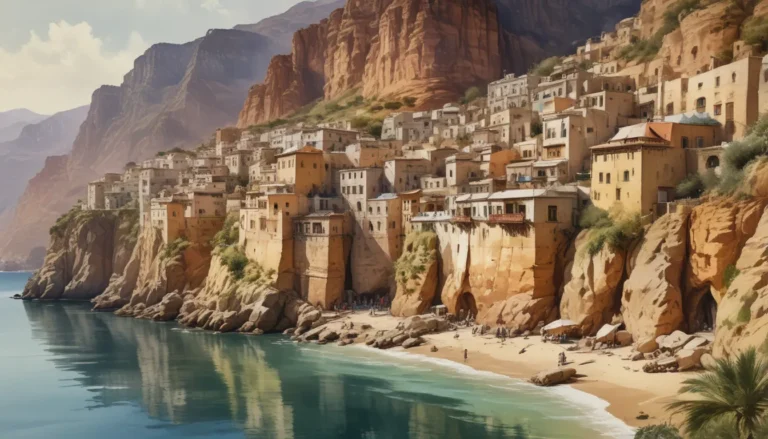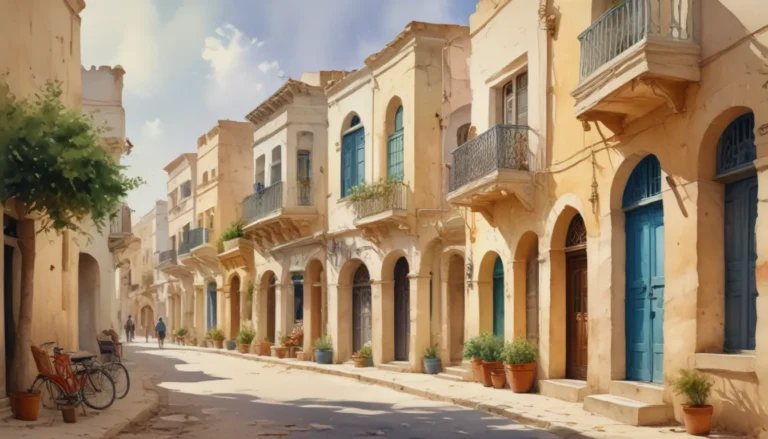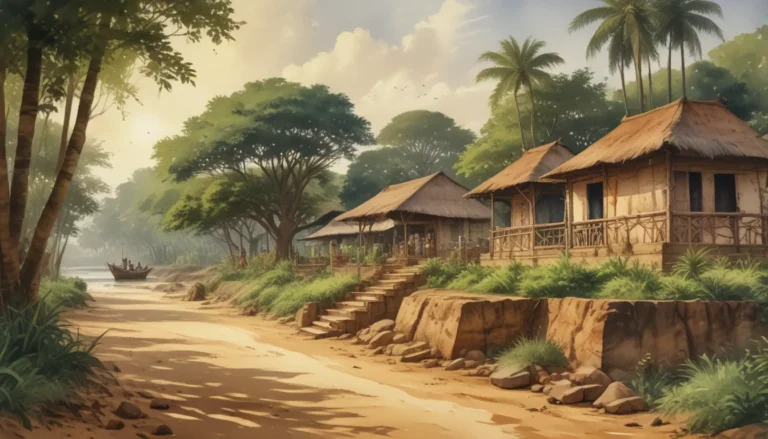The images in our articles are for illustrative purposes only and may not exactly match the content. They are intended to capture your interest and complement the text, not to replace it.
Are you ready to embark on a journey to learn more about the fascinating country of Ghana? From its vibrant culture to rich history, there are plenty of interesting facts to uncover. Let’s dive in and explore the essential aspects of Ghana that make it a unique and special place.
Exploring Ghana’s Cultural Heritage
Ghana Houses the Largest Open Air Market in West Africa
When visiting Ghana, be sure to explore the Kejetia Market in Kumasi, the largest open-air market in West Africa. Here, you can shop for traditional cloths, fabrics, footwear, and garments. The market also features a meat market and stalls selling fresh fruits and vegetables, offering a vibrant and bustling atmosphere for both locals and travelers.
In Ghana, Religious Tolerance and Fairness Is Promoted
Despite the diversity of religions in Ghana, including Christianity and Islam, Ghanaians prioritize religious tolerance and fairness. The importance of freedom of worship is instilled in the younger generation, emphasizing the acceptance and respect for different faiths. This cultural value contributes to the harmonious coexistence of various religious beliefs in the country.
Ghanaian Celebrities Embody Humility and Philanthropy
Ghana is home to celebrities like John Dumelo, who are known not only for their talent but also for their humility and philanthropic work. John Dumelo, a renowned actor and fashion designer, has established the John Dumelo Foundation to support humanitarian causes. These celebrities serve as inspiring role models who use their fame and wealth to give back to their communities.
Unveiling Ghana’s Historical Significance
Ghana Was the First Sub-Saharan Country to Gain Independence
In 1957, Ghana made history by becoming the first country in Sub-Saharan Africa to achieve independence. Through a merger of the former British Gold Coast territory and the Togoland trust, Ghana paved the way for other African nations to strive for self-governance. Despite facing political challenges, Ghana’s journey towards independence marked a significant milestone in African history.
The Ghanaian Currency Reflects Cultural Heritage
The Ghanaian currency, known as the Cedi, has an intriguing origin. Derived from the African word for cowry shell, the Cedi symbolizes a traditional form of currency used in the past. The symbolic connection to the cowry shell highlights Ghana’s rich cultural heritage and historical significance in trade and commerce.
Ghana Embraces Tropical Climate with Distinct Seasons
Ghana’s geographical diversity is defined by its tropical climate, characterized by two distinct seasons. The southern region experiences a warm and wet forest zone, while the capital, Accra, lies in an arid equatorial zone. With a rainy season from April to October and a dry season from November to March, Ghana showcases a unique climate pattern that influences its natural landscape.
Delving into Ghana’s Natural Wonders
Lake Volta: A Man-Made Marvel in Ghana
Lake Volta, one of the largest man-made lakes globally, covers 3,200 square miles of Ghana’s territory. The lake serves as a vital resource for transportation and electricity generation, with the Akosombo dam harnessing its water to power a significant portion of the country. Lake Volta’s immense size and strategic importance contribute to Ghana’s economic and environmental sustainability.
Cocoa Beans: Ghana’s Pivotal Export Product
Ghana ranks as the second-largest producer of cocoa beans globally, following the Ivory Coast. The production of cocoa beans, concentrated in regions like Ashanti and Volga, fuels Ghana’s agricultural sector and international trade. Commencing harvest in October, Ghana’s cocoa industry plays a crucial role in sustaining its economy and promoting agricultural exports.
Ghana Shines as a Leading Gold Producer
As the seventh-largest producer of gold worldwide, Ghana boasts a thriving gold mining industry that contributes significantly to its economy. With an impressive production of 102 tons in 2012, Ghana ranks as the second-largest gold producer in Africa, showcasing its rich mineral resources and mining expertise. In addition to gold, Ghana holds the ninth-largest diamond reserve globally, further enhancing its position in the precious metals market.
Celebrating Ghana’s Icons and Achievements
Kofi Annan: A Global Icon from Ghana
Renowned diplomat Kofi Annan, born and raised in Ghana, left an indelible mark on the international stage as the Secretary-General of the United Nations. Prior to his prestigious UN role, Kofi Annan served in various capacities, including Director of Tourism for Ghana and roles within the World Health Organization. His legacy as a diplomat and advocate for global peace and development reflects Ghana’s commitment to leadership and diplomacy.
Remarkable Achievements in Athletics and Architecture
Ghana boasts remarkable achievements in both athletics and infrastructure, exemplified by individuals like Ferdi Ato Abobe and historical sites like Elmina Castle. Ferdi Ato Abobe holds world records for walking and running backward, showcasing Ghana’s athletic prowess and unique talents. Elmina Castle, the oldest European-built structure in Sub-Saharan Africa, stands as a poignant reminder of Ghana’s historical connections and colonial past, highlighting the country’s cultural heritage and architectural significance.
Embracing Linguistic Diversity in Ghana
Despite English serving as the official language of Ghana, the country boasts over 200 other dialects and languages spoken by its diverse population. Languages such as Dagbani, Kwahu, and Ewe contribute to Ghana’s linguistic richness and cultural diversity, reflecting the country’s commitment to preserving its heritage and promoting multiculturalism. The harmonious coexistence of different languages symbolizes Ghana’s inclusive and welcoming spirit towards linguistic diversity.
Conclusion
As we conclude our exploration of Ghana, we have delved into the cultural, historical, and natural aspects that make this country truly unique. From vibrant markets to historical landmarks, Ghana offers a diverse tapestry of experiences for travelers and enthusiasts alike. By celebrating Ghana’s icons, achievements, and linguistic diversity, we gain a deeper appreciation for the rich tapestry of culture and heritage that defines this remarkable nation. Join us in celebrating Ghana’s legacy and embracing the spirit of discovery and learning as we journey through the captivating world of Ghana.
